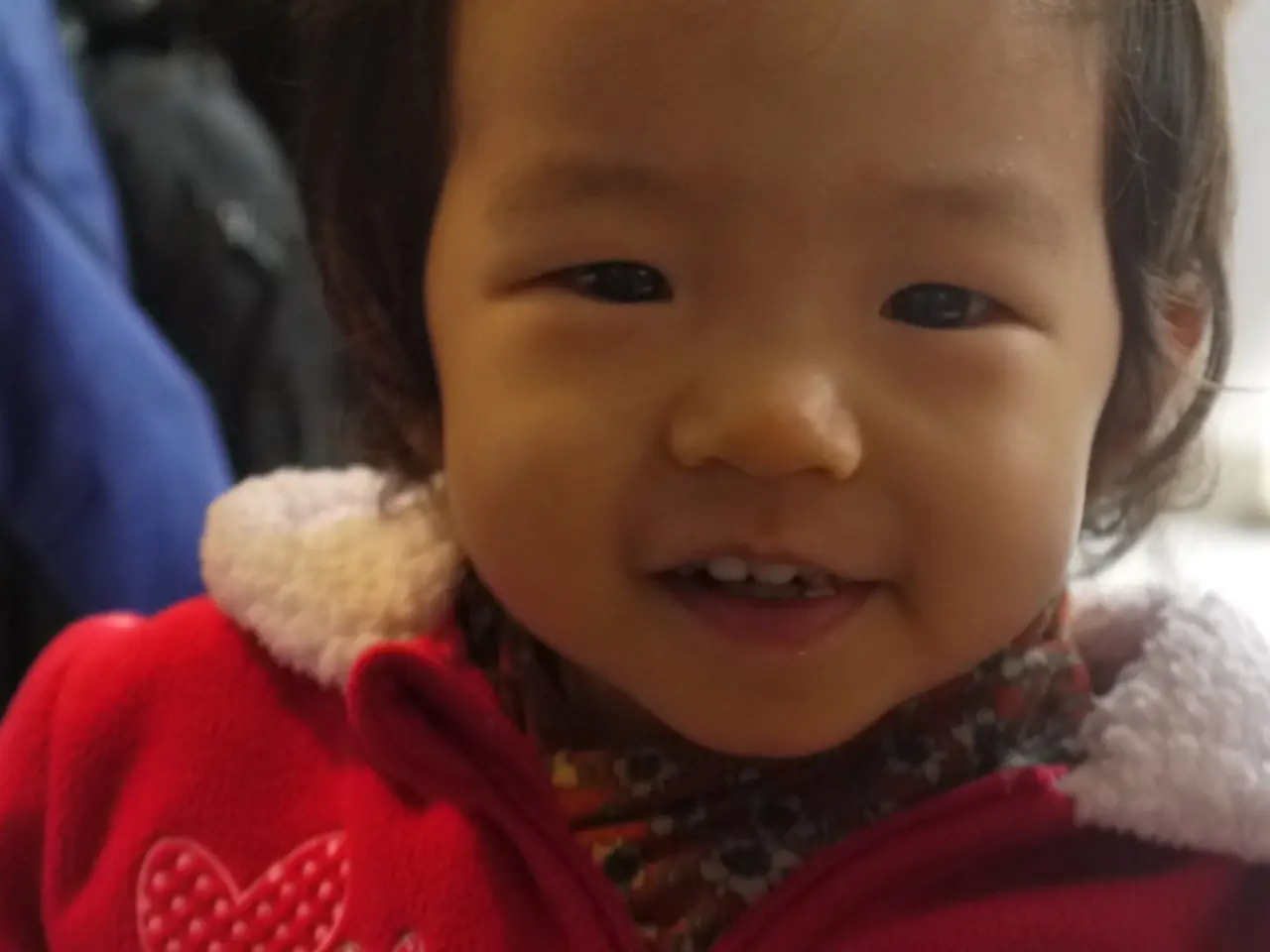Infant Brain Progression: Developmental Milestones in Infants Aged 0 to 1 Year
Cognitive development in infants is a fascinating process that unfolds from the moment of birth, lasting up to the first year of life. This development encompasses the acquisition of skills such as language, perception, memory, and physical coordination.
From birth, infants demonstrate remarkable abilities. They can differentiate among patterns, colours, and consonants, recognize facial expressions, and match abstract properties of stimuli across sensory modalities. By three months, babies begin to show interest in the wider world around them, exploring their own bodies, and developing a sense of self separate from the mother.
At around six months, a baby's memory starts to improve significantly. They may remember what they can do for a couple of weeks, and they begin to understand that objects continue to exist even when not seen (object constancy). At this stage, they may also start using actions to show what they want and may start pointing towards various objects of interest.
From six to nine months, babies become more alert and aware. They may start imitating facial actions or expressions, recognizing people they meet on a regular basis, and reacting to familiar sounds and known voices. This is the right age for playing games like peek-a-boo, as events seem to occur as a result of the child's own activities.
At nine to twelve months, a toddler has developed a better understanding of the things around him. He can use various sounds and gestures to communicate, and he may understand and respond to gestures and actions of people around him. He may also start to use toys in different shapes and colours, and he will try to manipulate various objects and his toys.
Parents play a crucial role in supporting their baby's cognitive development. Activities such as playing music, reading, and playing with bath toys can help achieve various cognitive milestones. Encouraging extracurricular activities like sports, music, arts, language learning, chess, robotics, and programming clubs also promote talents, creativity, social skills, and cognitive growth.
Supporting independent play with Montessori-style educational toys and engaging in language-rich interactions also benefit cognitive skills. Fostering social competence through group activities and cooperative games helps develop empathy, communication, and teamwork abilities.
It's important to note that delays in a baby's cognitive development could be due to reasons such as prematurity or major illness. If you have concerns about your baby's development, it's always best to consult with a healthcare professional.
In conclusion, cognitive development in infants is a remarkable journey filled with milestones and discoveries. By providing a stimulating and supportive environment, parents can help their babies grow and develop into curious, intelligent, and empathetic individuals.
Read also:
- Understanding Hemorrhagic Gastroenteritis: Key Facts
- Stopping Osteoporosis Treatment: Timeline Considerations
- Tobacco industry's suggested changes on a legislative modification are disregarded by health journalists
- Expanded Community Health Involvement by CK Birla Hospitals, Jaipur, Maintained Through Consistent Outreach Programs Across Rajasthan








